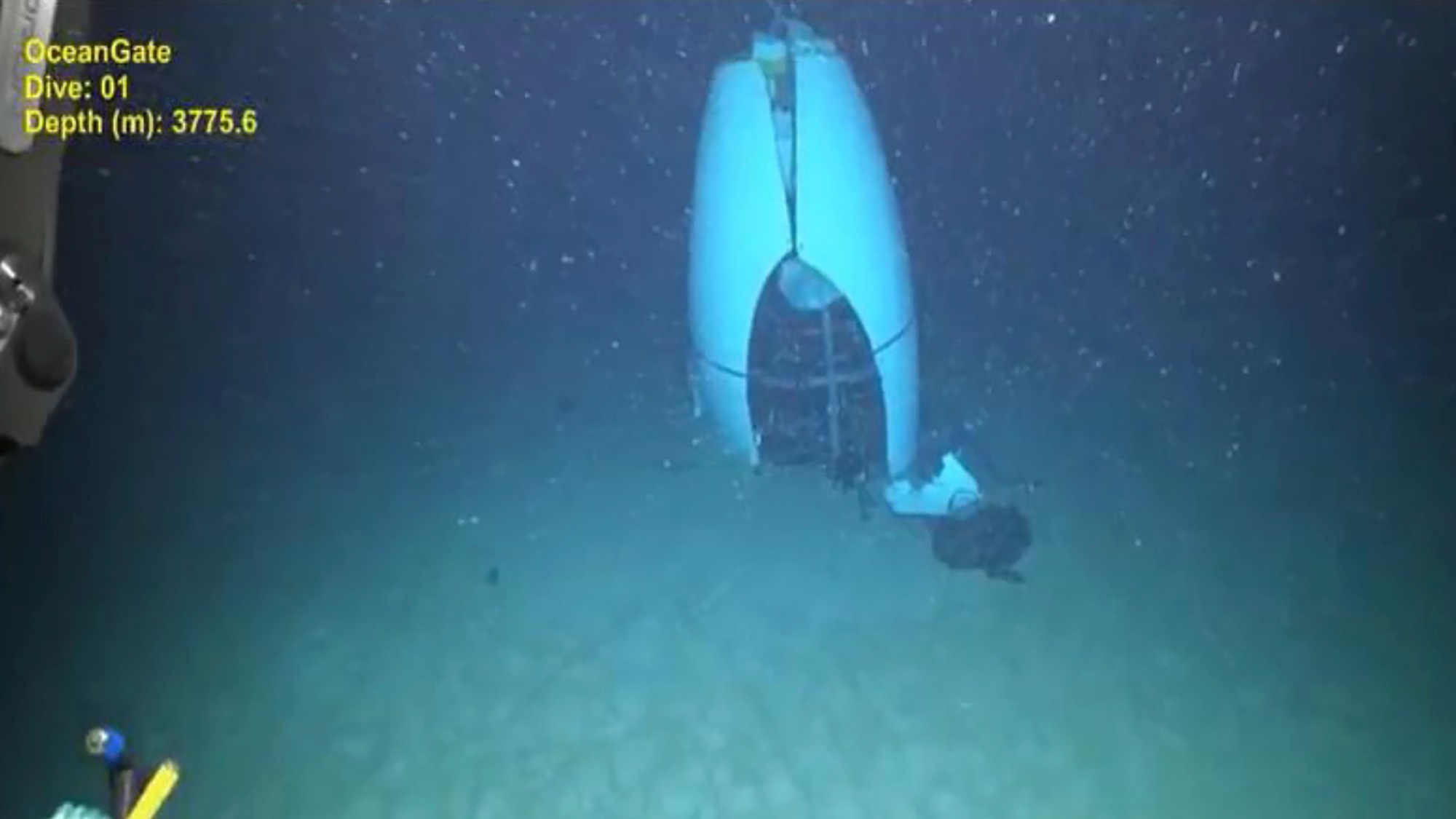Titan submersible inquiry reveals safety lessons for the future
The submersible imploded in June 2023, killing all five people aboard


A free daily email with the biggest news stories of the day – and the best features from TheWeek.com
You are now subscribed
Your newsletter sign-up was successful
It has been more than a year since OceanGate's Titan submersible imploded, killing all five people aboard, while on the way to visit the wreck of the RMS Titanic. Questions remain about what could have been done to prevent the accident, and 16 months on, the U.S. Coast Guard has begun a series of investigatory hearings hoping to realize a solution.
The purpose of the two-week inquiry, set to run from Sept. 16 to Sept. 27, is to "assure that every aspect of the case is probed and to determine the causes of the Titan submersible's loss, identify contributing factors and develop safety recommendations to prevent similar incidents," the Coast Guard said in a press release. Following the hearings, there will be efforts aimed at "enhancing safety protocols and preventing future tragedies."
What has been revealed at the hearings?
The hearings have "made public a flood of information about the doomed vessel's design and operation," and "paint a damning picture," said Wired, while also revealing some of the key mistakes and flaws that may have led to the implosion. The most notable perhaps is testimony that OceanGate "skirted, or simply ignored, accepted construction practices for submersibles." The company — whose founder, Stockton Rush, died aboard the Titan — "tested only one scale model of the innovative carbon fiber hull and, despite it failing early under high pressures, proceeded straight to building a full-scale hull." OceanGate also "relied on an unproven acoustic monitoring system to provide an early warning of failure."
The Week
Escape your echo chamber. Get the facts behind the news, plus analysis from multiple perspectives.

Sign up for The Week's Free Newsletters
From our morning news briefing to a weekly Good News Newsletter, get the best of The Week delivered directly to your inbox.
From our morning news briefing to a weekly Good News Newsletter, get the best of The Week delivered directly to your inbox.
The carbon fiber hull itself was also noted as having caused many of the problems. Under the standards of the American Bureau of Shipping (ABS), carbon fiber hulls are "not acceptable materials for submersibles," Roy Thomas, an ABS engineer, testified, per ABC News. The hulls "have very low resistance to impact loads, and the hull is susceptible to deformation under applied external loading."
The Titan had also "experienced dozens of problems during previous expeditions, including 70 equipment issues in 2021 and 48 more in 2022," according to The New York Times. During the winter, it was additionally "stored in bitterly cold temperatures outside a facility in Newfoundland, with no protection from the elements."
How can submersible safety be improved in the future?
It should be noted that there "has been up to this point a perfect track record in deep submersions," Chris Roman, an oceanography professor at the University of Rhode Island, said to CNN. It is "not a cavalier, high risk, every dive is like a daredevil event if done properly." There are "no shortcuts here, especially in this business. And if you cut corners, it will bite you," said Roman.
One immediate change that can be made is company culture, which in the case of OceanGate was "centered on 'making money' and offered 'very little in the way of science,'" former OceanGate marine operations director David Lochridge testified, said CNN. The company was "all smoke and mirrors" when it came to safety.
A free daily email with the biggest news stories of the day – and the best features from TheWeek.com
Others, such as Patrick Lahey, the founder of submersible manufacturer Triton, noted that there should be new protocols to prevent similar tragedies. Lahey "stressed the importance of certifying submersible vessels through a process that involves an extensive safety assessment carried out by independent marine organizations" during his testimony, said the BBC. At the end of the day, the submersible "was not quite ready for prime time," said Lahey.
Justin Klawans has worked as a staff writer at The Week since 2022. He began his career covering local news before joining Newsweek as a breaking news reporter, where he wrote about politics, national and global affairs, business, crime, sports, film, television and other news. Justin has also freelanced for outlets including Collider and United Press International.
